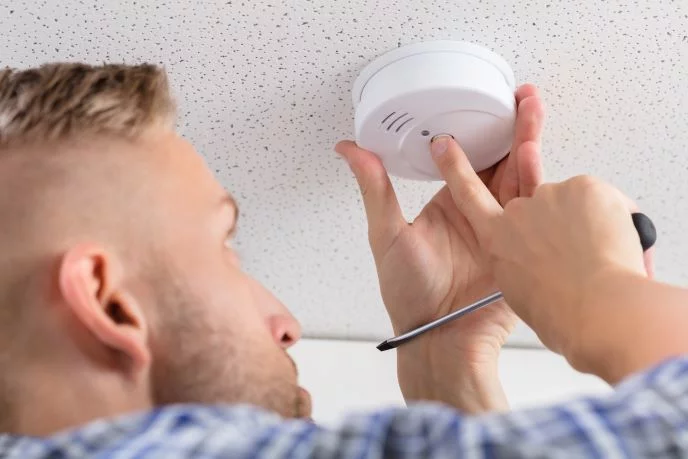
Carbon monoxide detectors could be necessary if you have a connected garage, use gas equipment, or have a fireplace. These alarms alert you before dangerously high gas levels occur. According to the NSPIRE standards for carbon monoxide alarms, every residence should have operational carbon monoxide alarms in strategic locations.
These standards help keep your home safe and your family protected.
You have fuel-burning appliances
Gas stoves, water heaters, and furnaces can release carbon monoxide. This gas has no smell or color. You may not know it is there unless you have an alarm. A small leak can grow into a big danger fast. An alarm gives you time to act before anyone gets sick.
You use a fireplace or wood stove
Burning wood can also release carbon monoxide. If your chimney is blocked, gas may fill your home. It is important to check your fireplace often. But even a clean one can sometimes cause problems. A carbon monoxide alarm gives extra peace of mind. Install one in the same room as the fireplace.
You have an attached garage
Cars left running in garages are a major cause of carbon monoxide leaks. The gas can easily move into your home. Even if you leave the garage door open, fumes can still get inside. An alarm placed near the door to the garage helps protect your home from this silent risk.
Do you have a basement or lower level?
Carbon monoxide is slightly lighter than air, but it spreads fast. If you have a basement, place alarms there too. Gas from a furnace or boiler often starts in lower areas. An alarm downstairs will give you an early warning.
You live in a multi-level or large home
The bigger your home, the more alarms you need. Gas can build up in one area while others stay safe. Install alarms on every floor. Also, place them outside the bedrooms, so you will hear them at night. This is key if your family is sleeping and unaware of a leak.
The conclusion
Carbon monoxide alarms are simple to install. They are small, affordable, and life-saving. Follow NSPIRE Standards for Carbon Monoxide Alarms to place them right. Test them monthly and change batteries as needed. A few minutes of effort could save your life.





